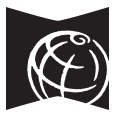Prepare for the Solar Eclipse Doubleheader With The Seattle Public Library
release date: September 14, 2023
Did you know that there are two solar eclipses happening over the next year? The first will occur October 14, 2023 and the second on April 8, 2024. Each will be viewed as partial eclipses in Seattle.
The Seattle Public Library is here to help you prepare with free solar-viewing glasses, eclipse education programs and essential tips for how to safely view these amazing celestial events.
A solar eclipse occurs when the moon passes between the sun and earth, and the moon fully or partially blocks the sun. Here is information on the two upcoming eclipses.
- Annular eclipse (partial in Seattle): On Saturday, Oct. 14, 2023, the U.S. will experience an annular eclipse, meaning that the sun never goes completely dark. (At maximum eclipse, in the path of annularity, you can see a dramatic “ring of fire” around the dark sphere of the moon.) At 8:07 a.m., Seattle will start to see the partial eclipse, with maximum coverage of 80% occurring at 9:20 a.m. (visibility will depend on the weather). To see what Seattle will observe of the eclipse, use the Eclipse Simulator and find more information on the gov eclipse site.
- Total eclipse (partial in Seattle): On Monday, April 8, 2024, parts of the U.S. will experience a total eclipse. Totality will be visible first in Mexico, then in Texas just after noon, local time. The eclipse will then move northeast through Oklahoma, Missouri, Ohio, New York and Maine, to name just a few of the states, and into Canada. The path of totality is over 100 miles wide, and passes over more cities than the 2017 solar eclipse. Seattle, like many parts of the North America, will see a partial eclipse, starting at 10:39 a.m. and reaching maximum coverage of the sun (20%) at 11:29 a.m. To see what Seattle will observe of this eclipse use the Eclipse Simulator. Find more information on the gov eclipse site. The next total eclipse to cross the continental U.S. will not be until Aug. 12, 2045.
Because the full sun never goes dark during an annular eclipse and because only a partial eclipse will be visible from Seattle during the total eclipse event, you will need special protective glasses or filters throughout the eclipse for safe viewing.
FREE ECLIPSE GLASSES
Starting on Friday, Sept. 15, free eclipse glasses will be available at all 27 locations of the Library. Solar eclipse glasses must be picked up in person at Library locations — no phone call or email reservations will be accepted. The glasses will be available on a first-come, first-served basis while supplies last. Please limit glasses to two pairs per family to ensure as many families as possible can participate.
You can also purchase eclipse glasses online — be sure to find glasses that are ISO-certified. Do not look directly at the sun during either eclipse without eclipse glasses or severe eye damage may occur. Young children should be closely supervised when outdoors during the eclipse.
ECLIPSE EDUCATION PROGRAMS AT THE LIBRARY
Nationally recognized astronomy educator Dennis Schatz is partnering with the Library to offer free eclipse education programs at Library locations. During these interactive programs, Schatz will share what to expect during each eclipse, how to view them safely and more fascinating information about eclipses. Here are upcoming programs:
- Douglass-Truth Branch: From 2:30 p.m. to 4:30 p.m., Wednesday, Sept. 20
- Broadview Branch: From 3 p.m. to 5 p.m., Friday, Sept. 22
- Ballard Branch: From 2 p.m. to 4 p.m., Wednesday, Sept. 27
- High Point Branch: From 4 p.m. to 6 p.m., Tuesday, Oct. 3
Find dates and times for eclipse education programs at www.spl.org/Calendar (search on “eclipse”) or at www.spl.org/eclipse. Library events are free and open to the public. Registration is not required.
MORE INFORMATION
The Seattle Public Library brings people, information and ideas together to enrich lives and build community. We support universal access to information and ideas, and form strong partnerships with local organizations to offer services that are accessible to all.
Contact the Library’s Ask Us service by phone at 206-386-4636 or by email or chat at spl.org/Ask. Staff are ready to answer questions and direct you to helpful resources and information.

